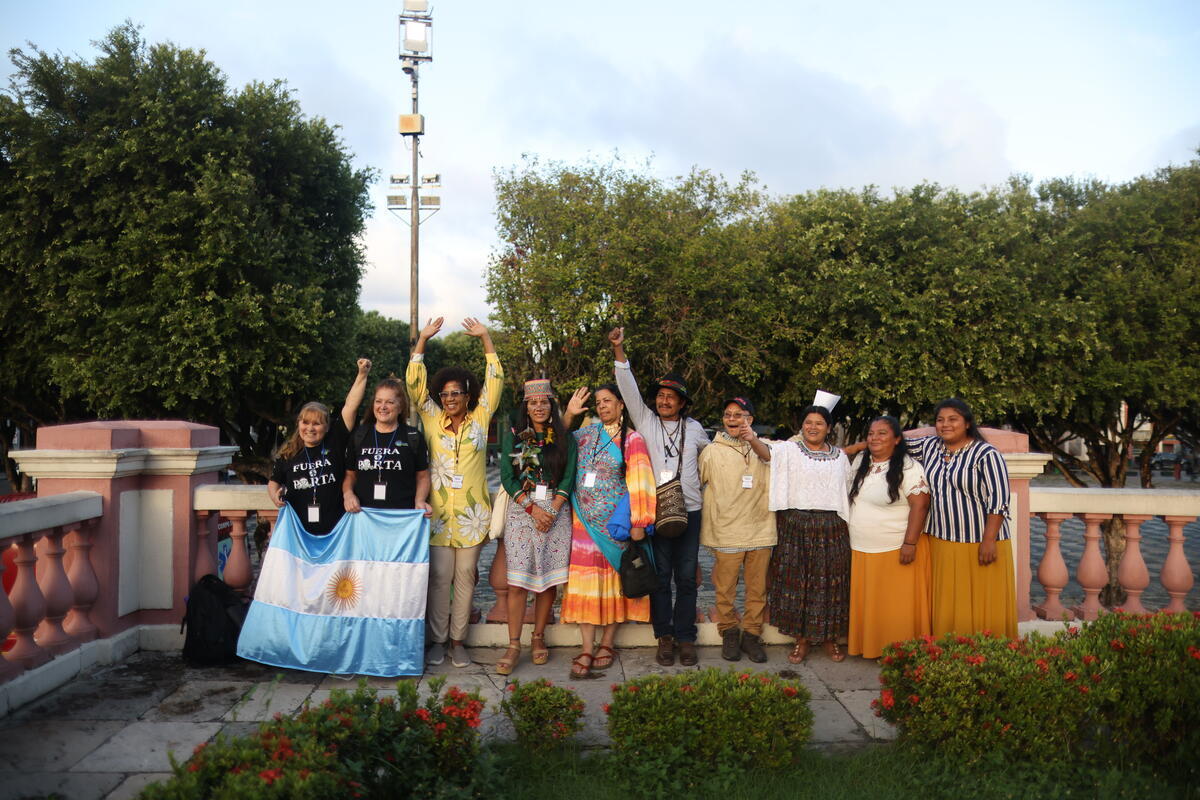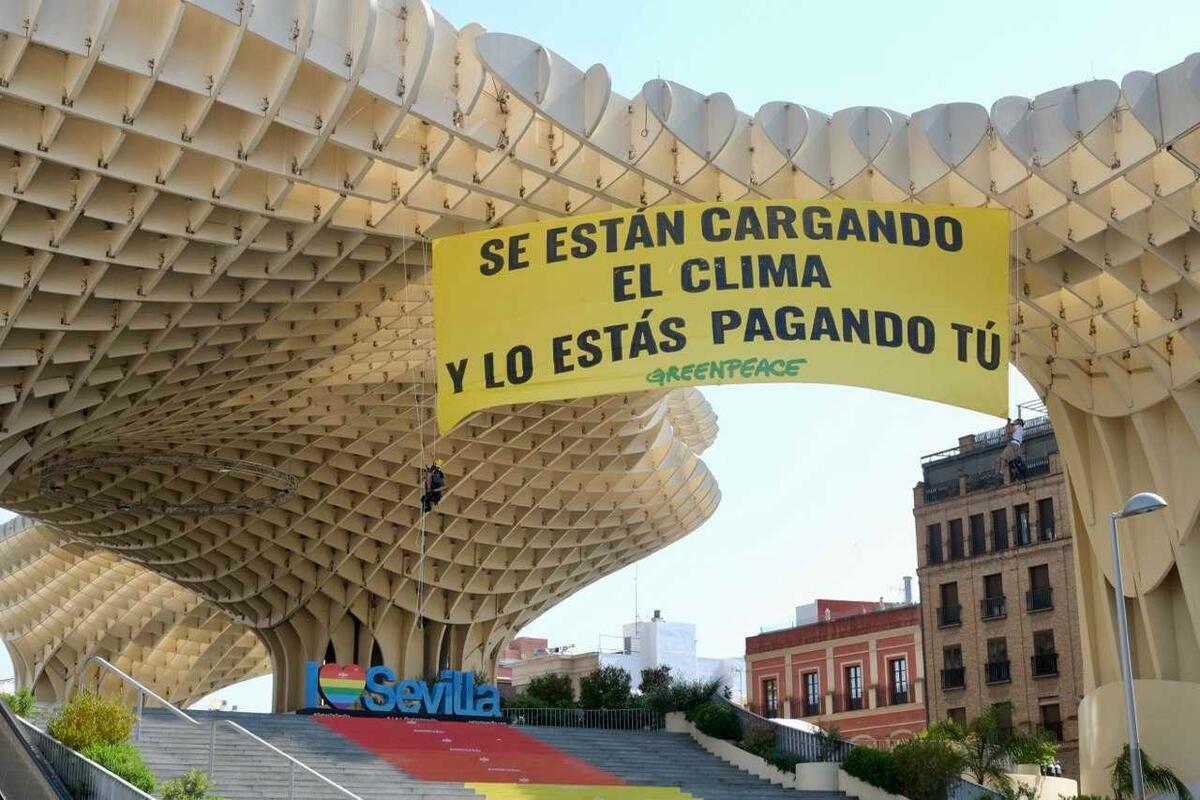From Turkey to Brazil, and Russia to the US, we’re seeing fires consuming our forests, killing wildlife and threatening our woodlands’ ability to trap and store carbon, a defense against the climate crisis. This year’s fire season is significantly more destructive than the previous average, and it will only get worse from here.
With more fires comes more emissions, fueling more rapid climate change, and worsening air quality at a time when the Covid-19 pandemic already threatens respiratory health. There is mounting evidence that air quality is a contributing factor in the pandemic.
Companies and governments need to act now to protect our planet by phasing out fossil fuels, stopping industrial agriculture and — with the guidance of Indigenous Peoples and forest guardians — protect and restore forests and other vital ecosystems.
Turkey
Turkey is suffering its worst fires in at least a decade. Thousands of people have been battling almost 100 separate blazes in cities and villages on the country’s Mediterranean and Aegean coasts. The flames have been fueled by scorching summer temperatures and conditions that experts say have been worsened by climate change.
Greenpeace Turkey is in Marmaris working to support local organisations in a collective response — including with mobile solar energy points to recharge phones and other equipment — while continuing to push for climate action like ending coal fired power plants.
Greece
Greece reported its highest temperature on record on Monday (46,1°C, 115°F); its worst heatwave in over 30 years. There have been more than 100 fires in two days. A major fire near Athens blocked the main highway linking the north and south, forcing hundreds to evacuate.
Greenpeace Greece is calling for urgent action to protect biodiversity and tackle the root causes of climate crisis — energy policies that are serving oil and fossil gas dependency. And telling bickering politicians to “shut up and act”.
Lebanon
Lebanon has been battling rapidly spreading wildfires for several days in a row. The blaze started in Lebanon’s remote Akkar region. Fires destroyed pine forests and threatened homes and northern areas of the country. Some of these fires have even spread to neighbouring Syria.
The climate crisis is hitting Lebanese forests with unprecedented force. Scorching heat waves intensify the fires and the iconic Cedar trees in Lebanon face more threats than ever.
Russia
Fires have scorched huge swaths of eastern Russia in recent days, with Siberia’s Yakutia region hit hardest. The fires hitting Siberia are so extreme that they’ve sent smoke streaming to the North Pole. The plume is expected to reach Canada later this week.
Russia is experiencing abnormally dry and hot weather conditions, which is causing fires to spread at an alarming rate. Greenpeace Russia staff have been joining forces with volunteer firefighters, local authorities and residents to fight back.
Italy
In Italy, temperatures also hit 40°C in parts of the country. One week after devastating fires hit the island of Sardinia, hundreds of people had to be evacuated from Sicily. While some of these fires were raging, the north of the country suffered flooding and landslides.
Amazon
A few weeks ago, new aerial photos from Greenpeace Brazil revealed illegal fires clearing the Amazon. The Brazilian Space Agency (INPE) registered 4,977 fire hotspots in July. These fires are burning after a prohibition against the use of fire to clear land.
Bolsonaro’s government is a threat to the forest, Indigenous Peoples, and to the global climate. To win the fight against the climate crisis, we cannot allow the destruction of the Amazon to continue.
United States
Wildfires are again plaguing western states that have also been facing a drought and life-threatening heatwave. Nearly 100 large fires have burned in more than a dozen US states as of Aug. 4, according to the National Interagency Fire Center.
Smoke from the wildfires in the west have been visible — and lowering air quality — across the entire country, even as far east as New York City. Two of the largest blazes — the Dixie Fire in California and the Bootleg Fire in Oregon — had burned an area nearly the size of New York City, Los Angeles and Chicago combined, according to CNN.
Greenpeace USA is calling for an end to federal subsidies for fossil fuel companies who have accelerated the climate emergency. In California, Greenpeace USA is calling on Governor Newsom to commit to clear and urgent action to phase out climate-warming fossil fuels.
Canada
Parts of Canada have been under the same heat dome as the United States. The extreme heat and resulting dry conditions have fed raging wildfires which devastated whole communities and cost hundreds of lives. The extreme heat also caused a massive die-off of marine wildlife along the Pacific Coast.
On June 29, the village of Lytton in the province of British Columbia experienced a historic temperature of 49.5°C / 121°F. A day later, it was evacuated due to a wildfire and engulfed in flames. In British Columbia, 269 active fires were reported as of Aug. 4, with more than 160 fires in Alberta, Saskatchewan, Manitoba and northwest Ontario, according to Canadian Press.
Greenpeace Canada is calling for the government to Build Back Fossil Free as well as for the preservation of climate-cooling old-growth forests.
Global Climate Action
Against this backdrop of extreme fires, floods and drought, governments and scientists are negotiating final wording of a major compilation of the last seven years of climate science. The U.N.’s Intergovernmental Panel on Climate Change (IPCC) sixth Assessment Report, released August 9, is drawing ever-clearer conclusions about the links between burning fossil fuels and weather extremes, such as heatwaves.
As forests burn, false solutions like “carbon offsets” and “net zero” become a deadly distraction from the real and rapid cut in climate-wrecking emissions that humanity must have to survive.
With so many fires on our horizons the only option is to increase forest protection and recovery like never before and pull the plug on fossil fuels by escalating climate action as if our lives depended on it.



